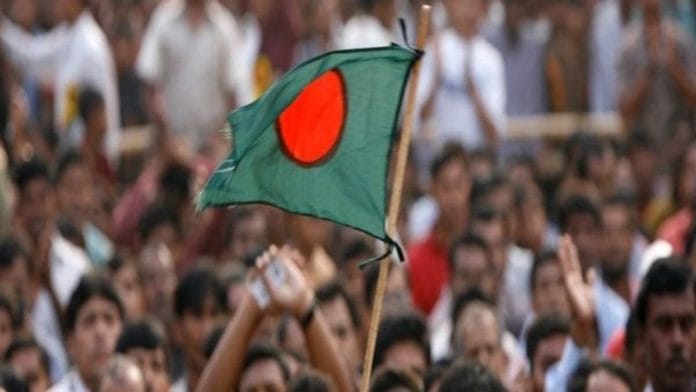New Delhi: A gruesome act of mob violence in Dhaka has quickly snowballed into a nationwide political storm in Bangladesh.
After a scrap trader Lal Chand Mia was beaten to death 9 July over alleged extortion, and BNP members were implicated, BNP expelled five of its activists allegedly involved in the incident, but blamed the absence of elections as a trigger for the violence.
“These incidents are happening because the country is being governed without a mandate,” BNP chief Mirza Fakhrul said, arguing that only a democratically elected administration can effectively ensure law and order. “Miscreants are taking advantage of the vacuum.”
The widely circulated video shows Lal Chand Mia being attacked with concrete slabs, and his assailants dancing on his lifeless body. The gruesome video has ignited protests, especially among students. Members of BNP’s affiliated wings—Jubo Dal, Chhatra Dal, and Swechchhasebak Dal—have reportedly been implicated in the attack.
Meanwhile, hundreds took to the streets in Dhaka last week, denouncing the surge in mob violence and calling out the state’s inability to curb it. At least seven arrests have been made so far, and a nationwide crackdown has been launched in connection with the killing.
According to Home Affairs Adviser Lieutenant General (retd) Jahangir Alam Chowdhury, the operation is part of a broader initiative to restore law and order and prevent further unrest ahead of the upcoming elections.
Political blamegame
Yet, even as the interim administration scrambles to control the narrative and move the case to a Speedy Trial Tribunal, political fault lines are deepening.
National Citizen Party Convener Nahid Islam said Sunday that those engaging in “extortion-driven politics” must be removed from the political arena, just as former Prime Minister Sheikh Hasina was ousted.
He also called for a mass rally on 3 August at the Central Shaheed Minar, promising to raise issues ranging from corruption and inequality to education, healthcare, and river erosion.
In a meeting Monday, BNP’s Mirza accused certain quarters of exploiting the murder for political purposes.
Speaking at a press conference Monday, Mirza announced that the party will form an ‘Investigation and Fact-Finding Committee’ to uncover the root cause behind the murder.
He suggested that there is strong reason to believe the incident is being used as a political tool to create instability ahead of the upcoming national elections.
According to police data, between January and June of this year alone, Bangladesh witnessed 1,930 murder cases, 515 kidnappings, and 89 mob killings. There have been 11,008 cases of violence against women and children.
Political violence remains rampant as well. Rights group Ain o Salish Kendra (ASK) reported 349 incidents of political violence in the past 11 months, resulting in 87 deaths. Of these, 323 incidents were linked to the Bangladesh Nationalist Party (BNP).
Editorials and civil society too voiced caution that both ruling and opposition parties must clean their houses.
A recent editorial in The Daily Star warned, “Unless the BNP firmly establishes a chain of command, clamps down on wrongdoing by its members, and purges criminal elements, it risks losing the public’s trust. Ending political criminality is not just a party’s responsibility; it is crucial for a democratic transition.”
(Edited by Viny Mishra)
Also read: ‘Kangaroo court abusing judiciary’: Awami League on Hasina’s indictment by Bangladesh tribunal






